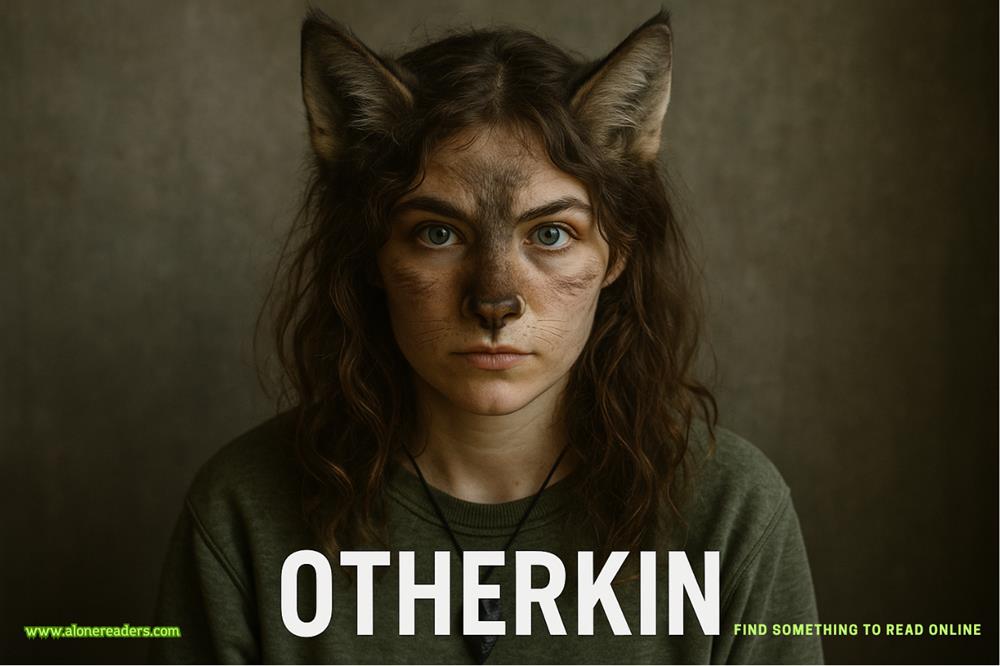Page 23 of The Girl Who Fell Through Time
Ariella’s footsteps echo as she leads Selene down a long corridor, the walls lined with portraits in heavy gilt frames. The Nightbloom line, Selene thinks, taking in their stern expressions, each one bearing the hallmarks of nobility and an unmistakable resemblance to Dorian.
“Ebonrose Hall was completed in 1523,” Ariella explains, her voice hushed with reverence as they stop in front of a large portrait of a man in a brocade doublet. “Built by Lord Edmund Nightbloom, Dorian’s ancestor. He chose this land for its vantage point—up on the hill as it is—and named it for the midnight irises that used to grow here, though none have bloomed in many years.”
“Irises… when the name is Ebonrose?” Selene questions.
Ariella smirks. “There’s two stories about that,” she explains. “One is that Lord Edmund was no gardener, and a proud man to boot, and refused to change the name when someone corrected him.”
“And the second one?”
“That it was his young daughter that came up with the name, and he went along with it for her sake.”
Selene smiles. “I prefer that story.”
“As do I.”
“Lord Gideon was fond of flowers, was he not?”
“Indeed he was!” says Ariella, looking pleasantly surprised that Selene can recall such a fact. “And children, too. I could imagine him renaming a house because his children wishedit so. He would have liked a dozen of them, I feel. Alas, it was not to be.”
They walk further, Ariella gesturing towards the windows draped in heavy curtains, many of which are drawn, casting shadows along the walls and concealing what might have once been grand views of the grounds. The furniture they pass is largely covered in thick white sheets, their forms ghostly in the dim light.
Ariella pauses at a large set of double doors. “This would have been the ballroom in its time. Quite a sight, I hear, during Lord Edmund’s reign and later in the days of Lord Ambrose, Dorian’s grandfather. They say the hall was filled with candlelight, the floors polished to a mirror shine.” She smiles wistfully. “If you can believe it, this room was where Lord Gideon met his lady—Evelyn Wildrose, Dorian’s mother.”
There’s no mirror shine now, just an empty, dusty space, cold and cobwebbed. Even Selene struggles to see past it.
They proceed through a series of rooms, most shut up with their fine furnishings hidden from sight. Still, Selene catches glimpses of their former glory—faded tapestries, ornate carvings on fireplace mantels, and the occasional chandelier, its crystals dulled by years of disuse. There is a sense of elegance in the architecture, despite the wear of time.
In one room, a grand library, dust motes float lazily in the morning light, casting a hazy glow over rows of leather-bound volumes. It’s better kept than the rest of the rooms, and Selene gets the sense it’s used often, even if the cleaning suggests otherwise.
“The library,” Ariella says, her tone soft with the same reverence Selene feels.
“It’s beautiful,” she murmurs, not entirely sure whether she is speaking of the room or the feeling it evokes. She drifts through the space, inhaling the scent of parchment and warm wood. She admires the colours, the panelling, thebusts and portraits… and lingers on the one over the hearth. It’s Lord Gideon, together with what must be his wife, and a young Dorian.
“She’s very beautiful,” Selene remarks, staring at Lady Evelyn. She looks like a rose given human shape. Her eyes are warm and brown, her countenance rosy, her hair deep chestnut, almost red.
She died in childbirth, Selene recalls, and the child too. The house would be very different now if either of them had lived.
“Inside and out, my lady,” Ariella remarks. She must have known her well, though she doesn’t look a great deal older than Dorian—twelve years, maybe. Fifteen, at most. She can’t be more than thirty-five.
“How long have you been here, Ariella?” Selene asks.
“Oh, I was born here,” she explains, her eyes gleaming with mischief. “Would you like to know a family scandal?”
It is entirely improper, but Selene definitely wants to know. She has never been one to turn down gossip. “Go on.”
“Follow me.”
Ariella leads her to another wall, and to the portrait of Dorian’s grandfather.
“It’s a secret everyone knows,” Ariella tells her, “hardly seems fair to exclude you. See, before his marriage to Dorian’s grandmother—Lady Cecily—Lord Ambrose fell in love with a penniless village girl called Anna. But his parents forbade the match and forced him to marry Lady Cecily. It was only after the wedding that he discovered he had fathered a child with Anna. Lady Cecily was very understanding of the situation and would have insisted upon him supporting the woman and her child, had Lord Ambrose not done the right thing himself. He moved Anna and her child into a house on the grounds. Whether or not the affair continued whilst Lady Cecily was alive, we aren’t sure, but by all reports it was ahappy arrangement. He remained a devoted husband, and a devoted father, until Lady Cecily died not long after the birth of Lord Gideon. His own parents were dead by then, and he was the lord of the manor. He moved Anna and her child into the house to act as housekeeper, and their daughter, Elizabeth, grew up alongside her half-brother.”
It seems like a decent family scandal, but it feels like ancient history. Selene waits for the story to reach its modern relevance.
“Elizabeth,” Ariella continues, “is my mother.”
Selene does a quick calculation in her mind. “You’re Dorian’s… half-cousin?”
Ariella beams. “I am. We usually didn’t bother with the ‘half’ part, though. We grew up together like our parents did.”















